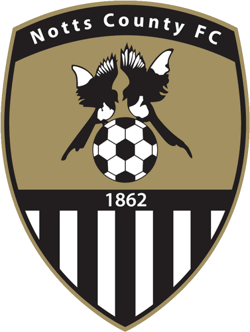
As it happens it not only became organised but became arguably the biggest sport in the world, watched by millions on an almost daily basis. It is now big business, worth billions of pounds and played throughout the world.
We’ve already had a look at the country’s most successful clubs, found out about the first ever games and goals scored and talked about the oldest stadiums. But which teams were the first to cotton on to the fact that people would like to watch those twenty-two men kicking a pig’s bladder around a field?
The table below shows the oldest teams in the world we list on this site, below this you can find the oldest clubs in England. It is important to note that the oldest football team in England is Sheffield FC formed in 1857 and nearby Hallam FC formed in 1860. We do not list these on the site as they play in lower leagues but they were critical clubs in the formation of football as we know it today. Sheffield FC were responsible for the formation of the Sheffield rules, many of which were adopted into FA rules we know today – although Sheffield FC did not adopt them until 1878.
List Of The Oldest Football Teams
| Team | Year Founded | Current Stadium | Previous Stadiums |
|---|---|---|---|
| TSV 1860 München | 1860 | Stadion an der Grünwalderstraße, Olympiastadion, Sechzger | |
| Notts County | 1862 | Meadow Lane | Trent Bridge |
| Stoke City | 1863 | Bet365 Stadium | Victoria Ground |
| Wrexham A.F.C | 1864 | Racecourse Ground | Rhosddu Recreation Ground |
| Gent | 1864 | Ghelamco Arena | Carpentierplein, Jules Ottenstadion, Mussenstraat, Albertlaan |
| Nottingham Forest | 1865 | The City Ground | The Forest, Castle Ground, The Meadows, Trent Bridge, Parkside Ground, Gregory Ground, Town Ground |
| Chesterfield | 1867 | Proact Stadium | Recreation Ground (Saltergate) |
| Queens Park FC | 1867 | Hampden Park | Queen's Park Recreation Ground, first Hampden Park, Titwood, second Hampden Park |
| Sheffield Wednesday | 1867 | Hillsborough | Highfield, Myrtle Road, Heeley, Hunter's Bar, Sheaf House, Bramall Lane, Olive Grove |
| Kilmarnock | 1869 | Rugby Park | The Grange, Holm Quarry, Ward's Park, Rugby Park |
| England | 1870 | Wembley | Wembley |
| Reading | 1871 | Madjeski Stadium | Reading Recreation Ground, Reading Cricket Ground, Coley Park, Caversham Cricket Ground, Elm Park |
| Rangers | 1872 | Ibrox | Unknown |
| Scotland | 1872 | Hampden Park | Hamilton Crescent, first Hampden Park, second Hampden Park, Celtic Park, Ibrox Park |
| Heart Of Midlothian | 1874 | Tynecastle | The Meadows, Powburn, Powderhall |
| Hamilton Academical | 1874 | New Douglas Park | Douglas Park |
| Bolton Wanderers | 1874 | The University of Bolton Stadium | Pike's Lane, Burnden Park |
| Aston Villa | 1874 | Villa Park | Aston Park / Wellington Road |
| Hibernian | 1875 | Easter Road | The Meadows, Hibernian Park |
| Birmingham City | 1875 | St Andrew’s | Arthur Street, Ladypool Road, Muntz Street |
| Blackburn Rovers | 1875 | Ewood Park | Leamington Street |
| Port Vale | 1876 | Vale Park | The Meadows, Westport Meadows, Burslem Football and Athletic Ground, Athletic Ground, The Old Recreation Ground |
| Macclesfield Town Football Club | 1876 | Moss Rose | Victoria Road |
| Middlesbrough | 1876 | Riverside Stadium | Linthorpe Road West cricket ground, Ayresome Park |
| Wales | 1876 | The Principality Stadium | Cardiff Arms Park, Cardiff City Stadium, Liberty Stadium, Racecourse Ground |
| Partick Thistle | 1876 | Firhill Stadium | Kelvingrove Park, Jordanvale Park, Muir Park, Meadowside |
| Wolverhampton Wanderers | 1877 | Molineux | Goldthorn Hill, John Harper's Field, Dudley Road, |
| Crewe Alexandra | 1877 | Alexandra Stadium | Alexandra Recreation Ground, Sandbach |
| St Mirren | 1877 | St Mirren Park | Love Street |
| Grimsby Town | 1878 | Blundell Park | Abbey Park, Clee Park |
| Everton | 1878 | Goodison Park | Anfield |
| West Bromwich Albion | 1878 | The Hawthorns | Stoney Lane Ground |
| Ipswich Town | 1878 | Portman Road | Broomhill Park |
| Sunderland | 1879 | The Stadium Of Light | Blue House Field, Groves Field, Horatio Street, Abbs Field, Newcastle Road, Roker Park |
| Swindon Town | 1879 | The County Ground | The Croft |
| Fulham | 1879 | Craven Cottage | Star Road, Eel Brook Common, Lillie Rec, Putney Lower Common, Ranelagh House, Barn Elms Playing Fields, Parsons Green, Half Moon, West Brompton, Loftus Road |
| Doncaster Rovers | 1879 | Keepmoat Stadium | Town Moor, the Racecourse, Intake Ground, Bennetthorpe Ground, Belle Vue |
| Preston North End | 1880 | Deepdale | Moor Park, Bow Lane |
| Manchester City | 1880 | The Etihad | Maine Road |
| Leyton Orient | 1881 | Brisbane Road | Glyn Road, Whittle's Athletic Ground, Millfields Road, Lea Bridge Road |
Oldest Clubs in England
Here’s a look at the eleven oldest football clubs in England that are still in existence.
It’s eleven rather than ten because many of them were formed in the same year as each other, which also means they’re not in an exact order…
Number Eleven: Port Vale – 1876
 Based in Stoke-on-Trent, Port Vale are one of just a few football clubs in the land that isn’t named after a geographical location. According to the club’s own history it took the name from Port Vale House, the building in which it was formed in 1876. Presumed to have been an offshoot of Porthill Victoria Football Club, the name was changed to Burslem Port Vale when it moved to the Burslam area in 1884. The Burslam was dropped in 1907, however.
Based in Stoke-on-Trent, Port Vale are one of just a few football clubs in the land that isn’t named after a geographical location. According to the club’s own history it took the name from Port Vale House, the building in which it was formed in 1876. Presumed to have been an offshoot of Porthill Victoria Football Club, the name was changed to Burslem Port Vale when it moved to the Burslam area in 1884. The Burslam was dropped in 1907, however.
Number Ten: Middlesbrough – 1876
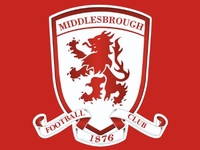 Also formed in 1876 was Middlesbrough, the North-East club oft forgotten about by people obsessed with Sunderland and Newcastle. The Smoggies didn’t turn professional until 1889, though they had a good basis having won the FA Amateur Cup in both 1895 and 1898. Interestingly they went back to being an amateur side in 1892 and turned professional permanently in 1899. Presumably some fans often tell the players they’re amateurs even today, but that’s not technically true.
Also formed in 1876 was Middlesbrough, the North-East club oft forgotten about by people obsessed with Sunderland and Newcastle. The Smoggies didn’t turn professional until 1889, though they had a good basis having won the FA Amateur Cup in both 1895 and 1898. Interestingly they went back to being an amateur side in 1892 and turned professional permanently in 1899. Presumably some fans often tell the players they’re amateurs even today, but that’s not technically true.
Number Nine: Blackburn Rovers – 1875
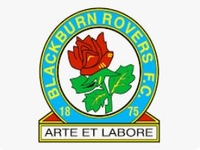 The Lancashire side was formed in 1875 and was a founding member of the Football League thirteen years later. Blackburn are one of just three sides who founded both the Football League and the Premier League, with Everton and Aston Villa making up the trio. Founded following a meeting at a Blackburn hotel, they surprised many when they became the first team other than Manchester United to win the newly formed Premier League in 1995.
The Lancashire side was formed in 1875 and was a founding member of the Football League thirteen years later. Blackburn are one of just three sides who founded both the Football League and the Premier League, with Everton and Aston Villa making up the trio. Founded following a meeting at a Blackburn hotel, they surprised many when they became the first team other than Manchester United to win the newly formed Premier League in 1995.
Number Eight: Birmingham City – 1875
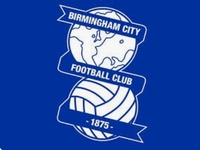 The Midlands side has been one continuous club since 1875, though they were formed under the name of Small Heath Alliance. In 1888 they decided to drop the ‘Alliance’ and became simply Small Heath and then in 1905 they changed their name to Birmingham. By 1943 they’d decided to add the ‘City’ to their title, perhaps as an attempt to wind up their bitterest rivals Aston Villa by suggesting they were the city’s main team. They helped to found the Second Division and were also its first ever champions.
The Midlands side has been one continuous club since 1875, though they were formed under the name of Small Heath Alliance. In 1888 they decided to drop the ‘Alliance’ and became simply Small Heath and then in 1905 they changed their name to Birmingham. By 1943 they’d decided to add the ‘City’ to their title, perhaps as an attempt to wind up their bitterest rivals Aston Villa by suggesting they were the city’s main team. They helped to found the Second Division and were also its first ever champions.
Number Seven: Bolton Wanderers – 1874
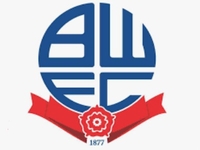 Bolton Wanderers is another team that was formed with a different name to being with. Christ Church Football Club came together in 1874 and changed its name three years later. They were a founding member of the Football League but have a rather more disappointing record attached to their name: They have spent the most amount of seasons in the top-flight without ever winning the title. They’ve won the Second Division title three times and they’ve also picked up four FA Cup trophies over the years.
Bolton Wanderers is another team that was formed with a different name to being with. Christ Church Football Club came together in 1874 and changed its name three years later. They were a founding member of the Football League but have a rather more disappointing record attached to their name: They have spent the most amount of seasons in the top-flight without ever winning the title. They’ve won the Second Division title three times and they’ve also picked up four FA Cup trophies over the years.
Number Six: Aston Villa – 1874
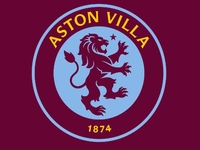 A year before Birmingham City was formed another team had been created in the second city. Aston Villa was the brainchild of the Villa Cross Wesleyan Chapel in the town of Handsworth, which is now part of Birmingham itself. The Villa have won seven first division titles over the course of their existence and they’re one of just five English teams that have won the European Cup. Villa’s chairman, William McGregor, is widely considered to be the father of the Football League.
A year before Birmingham City was formed another team had been created in the second city. Aston Villa was the brainchild of the Villa Cross Wesleyan Chapel in the town of Handsworth, which is now part of Birmingham itself. The Villa have won seven first division titles over the course of their existence and they’re one of just five English teams that have won the European Cup. Villa’s chairman, William McGregor, is widely considered to be the father of the Football League.
Number Five: Reading – 1871
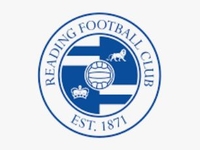 Considering football is a working class sport there’s something a bit odd about a team nick-named The Royals. Then again, they are based in Berkshire and that’s never been a hotbed of socialist revolutions. Huntley & Palmers biscuit makers were based in Reading and that led the team to be nicknamed The Biscuitmen for a time. Founded in 1871 after a meeting at the Bridge Street Rooms in the city, they’ve won the Second Division title twice.
Considering football is a working class sport there’s something a bit odd about a team nick-named The Royals. Then again, they are based in Berkshire and that’s never been a hotbed of socialist revolutions. Huntley & Palmers biscuit makers were based in Reading and that led the team to be nicknamed The Biscuitmen for a time. Founded in 1871 after a meeting at the Bridge Street Rooms in the city, they’ve won the Second Division title twice.
Number Four: Sheffield Wednesday – 1867
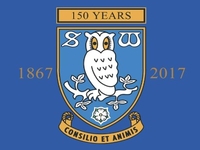 The Wednesday Cricket Club was one of the most successful cricket establishments in Sheffield following its formation in 1820 or so. It was named after the day of the week that the club’s founding members had off from work. In 1867 members decided to form a football club in order to maintain their fitness during winter when they couldn’t play cricket and it became Sheffield Wednesday. The football team was soon far more popular than the cricketing side of affairs and the two sports decided to become completely separate entities in 1882.
The Wednesday Cricket Club was one of the most successful cricket establishments in Sheffield following its formation in 1820 or so. It was named after the day of the week that the club’s founding members had off from work. In 1867 members decided to form a football club in order to maintain their fitness during winter when they couldn’t play cricket and it became Sheffield Wednesday. The football team was soon far more popular than the cricketing side of affairs and the two sports decided to become completely separate entities in 1882.
Number Three: Nottingham Forest – 1865
 Some shinty players in Nottingham decided to form a football team as a response to the formation of Notts County several years before. The team was called Nottingham Forest Football and Bandy Club when it was first formed in 1865. You may well have noticed from their name, but to begin with they were a multi-sports club rather than specialising in just football. There were bandy and shinty teams as well as a baseball club. Along with Aston Villa, Liverpool, Manchester United and Chelsea they are one of five English sides to have won a European Cup.
Some shinty players in Nottingham decided to form a football team as a response to the formation of Notts County several years before. The team was called Nottingham Forest Football and Bandy Club when it was first formed in 1865. You may well have noticed from their name, but to begin with they were a multi-sports club rather than specialising in just football. There were bandy and shinty teams as well as a baseball club. Along with Aston Villa, Liverpool, Manchester United and Chelsea they are one of five English sides to have won a European Cup.
Number Two: Stoke City – 1863
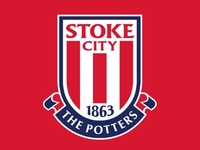 Another team based in Stoke-on-Trent like Port Vale, Stoke City Football Club was named Stoke Ramblers when the club was formed in 1863. The club was made up of pupils from Charterhouse School who decided to make a team when they were apprentices at North Staffordshire Railway. The Ramblers merged with Stoke Victoria Cricket Club to become Stoke City in 1878, meaning that some people don’t think that they should be on this list. They are though, so get over it.
Another team based in Stoke-on-Trent like Port Vale, Stoke City Football Club was named Stoke Ramblers when the club was formed in 1863. The club was made up of pupils from Charterhouse School who decided to make a team when they were apprentices at North Staffordshire Railway. The Ramblers merged with Stoke Victoria Cricket Club to become Stoke City in 1878, meaning that some people don’t think that they should be on this list. They are though, so get over it.
Number One: Notts County – 1862
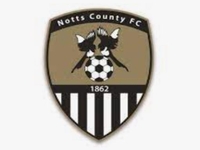 Philosopher’s like to muse over whether or not a falling tree can be heard if there’s no-one there to hear it fall. A more interesting question might be, why did Notts County form a football club when there were no other clubs to play against? Records show they played matches as early as the 28th of November 1862, meaning that they are officially recognised as the oldest club still playing in the Football League. Interestingly the club actually dates back to before the formation of the Football Association and to begin with played a game that they’d made up for themselves.
Philosopher’s like to muse over whether or not a falling tree can be heard if there’s no-one there to hear it fall. A more interesting question might be, why did Notts County form a football club when there were no other clubs to play against? Records show they played matches as early as the 28th of November 1862, meaning that they are officially recognised as the oldest club still playing in the Football League. Interestingly the club actually dates back to before the formation of the Football Association and to begin with played a game that they’d made up for themselves.
Oldest Clubs No Longer In Existence
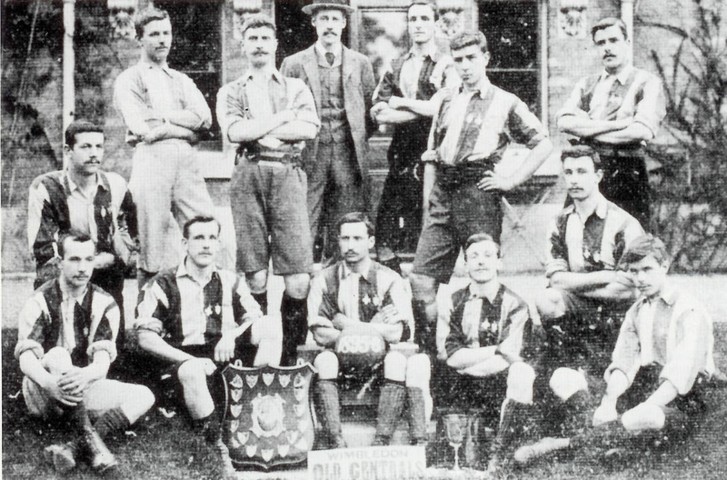
A quick look around the site will lead you to several articles of interest when it comes to the early days of football. You can read about the founding members of the football league, for example. There’s also an in-depth piece about the history of football in general. Perhaps the most relevant, however, is the piece about the first ever football team, which explains about how football was formed out of the sport of rugby.
That article is relevant because whether a team was ever a ‘football team’ is up for some debate. What we do know is that numerous teams are no longer in existence but at one point or another were considered to be ‘football clubs’. An example of this would be The Foot-Ball Club from Edinburgh, which existed from 1824-1841. The club rules said that ‘tripping’ was forbidden but you could ‘hold or pick up’ the ball, so the extend to which it was a football club is debatable.
The Great Leicestershire Cricket and Football Club existed back in 1840 but is no longer around. Similarly The Body-Guard Club of Rochdale and The Fear-noughts Club were documented as having played a game against each other in Lancashire in 1848. The Surrey Football Club was formed in 1849 and they came up with the first set of rules that weren’t from a school setting.
Football clubs a come and go and will continue to do so. Teams enter into administration or are moved to entirely different areas, such as when Wimbledon Football Club became the MK Dons. The important thing is that the love of the sport exhibited by supporters throughout the world means that every time one does disappear another one pops up in its place, such as AFC Wimbledon. Some clubs have been in existence since as long ago as 1862, surviving two World Wars and any number of other threats. Long may the continue to thrive.
